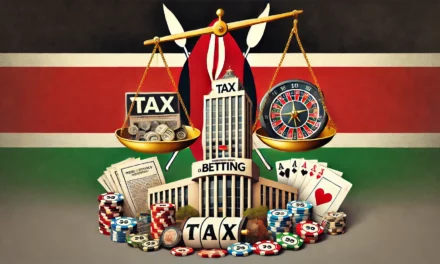As Thailand moves closer to legalizing casinos and online gambling, a new survey by the National Institute of Development Administration (NIDA) reveals a nation deeply divided. While 59% of Thais oppose the introduction of entertainment complexes and casinos, 29% are in full support, highlighting a growing debate over the potential economic benefits versus societal concerns.
The survey, which polled 1,310 people, also found that 58% of respondents are against the legalization of online casinos. Yet, with the government pushing forward with regulatory bills, the question remains: Is Thailand missing out on a golden economic opportunity, or is public caution justified?
A Nation Divided
The NIDA survey underscores the challenges facing Thailand’s government as it seeks to balance public sentiment with economic ambition. The proposed Integrated Resorts Bill, which includes provisions for casinos and entertainment complexes, aims to boost tourism and generate significant revenue. However, the strong opposition from a majority of citizens suggests that the road to legalization will not be smooth.
“The numbers reflect a deep-seated concern about the social impact of gambling,” said Dr. Somchai Phatharathananunth, a sociologist at Mahidol University. “Many Thais worry about the potential rise in problem gambling and its effects on families and communities.”
Economic Potential vs. Social Risks
Proponents of the bill argue that legalized gambling could be a game-changer for Thailand’s economy. Former Prime Minister Thaksin Shinawatra, whose political influence remains significant as the father of the current PM, has been vocal about the potential benefits.
“Online gambling already has two to four million Thai users, with savings of 300 billion baht and annual gains and losses of about 500 billion baht,” Thaksin stated. “If we can tax 20%, we could generate over 100 billion baht annually.”
Thaksin’s comments highlight the untapped potential of a regulated market. By legalizing online gambling, the government could redirect billions of baht from the black market into the formal economy, creating jobs, boosting tourism, and funding public services.
Tourism and Beyond
The proposed entertainment complexes, which are expected to include casinos, are seen as a way to elevate Thailand’s tourism sector. With Bangkok likely to host at least one of these venues, the government hopes to attract high-spending international visitors, similar to the success seen in Singapore and Macau.
“These complexes could transform Thailand into a regional entertainment hub,” said Pimpa Limthongkul, an economist at Chulalongkorn University. “But the government must ensure that the benefits outweigh the risks, particularly when it comes to problem gambling and social inequality.”
The Online Gambling Question
While the focus has been on physical casinos, the potential legalization of online gambling is equally contentious. Critics argue that it could exacerbate problem gambling, especially among younger Thais. However, supporters point to the success of regulated online markets in Europe and the US, where strict oversight has minimized harm while generating significant tax revenue.
“The key is regulation,” said Somsak Jeamteerasakul, a political analyst. “If the government can create a robust framework that protects vulnerable players while capturing the economic benefits, it could be a win-win for Thailand.”
A Delicate Balancing Act
As Thailand moves forward with its gambling legislation, the government faces a delicate balancing act. On one hand, the economic potential is undeniable: billions of baht in tax revenue, thousands of jobs, and a boost to tourism. On the other hand, public opposition remains strong, driven by concerns over social harm and moral values.
“The government must tread carefully,” said Dr. Somchai. “They need to address the public’s concerns head-on and demonstrate that the benefits of legalized gambling will be shared equitably across society.”
What’s Next?
With the Integrated Resorts Bill progressing through the legislative process, all eyes are on how the government will navigate this complex issue. Will they find a way to win over the skeptical majority, or will economic pressures push the bill through despite public opposition?
One thing is clear: Thailand’s gambling debate is far from over. As the country stands at a crossroads, the decisions made today will shape its future for decades to come.





